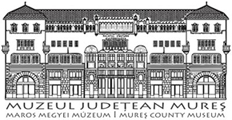Marisia - Maros Megyei Múzeum Évkönyve 30-31/3. (2011)
Felician Suciu: Medalion-astristul Ladislau Vasiliu baron de Popp (1819-1875)
Marisia XXX-XXXI Medalion-astristul Ladislau Vasiliu baron de Popp (1819- 1875) Felician SUCIU Medallion- Baron Ladislaus Vasiliu Popp Summary During its existence (1861- 1950), ASTRA or „Asociatia transilvanä pentru Iiteratura §i cultura poporului roman” (in English, The Transylvanian Association for Romanian Literature and the Culture of the Romanian People) has been lead by 12 chairmen. Ladislau Vasile Pop has been the second to run ASTRA from 1867 to 1875. He was born on January 6th 1819 as the son of priest Anania Pop from Berind, which was situated somewhere around the town of Cluj. He graduated the primary school, the highschool and the Law University in Cluj between 1825-1838. He also studied theology at Blaj and Wien. In 1842 he returned to Blaj as a mathematics and geometry teacher and became the first Romanian teacher in the entire Transylvania to teach in Romanian. This is why he is forced to go away, heading for Tärgu- Mure§, where he worked at „Tabla regeascä”. In 1847 or 1848, with loan P. Maior's help, he moved to Reghin. Here he was hired by baron Bornemisza. He married Elena Olteanu, daughter of merchant loan Olteanu. After the 1848-1849 revolution he was named district comissar in the Kingdom and then in Bistrita, where he worked as an advisor for the „criminal court of law” and then as a „supreme court criminal”. He carried on as an advisor at The Supreme Court in Sibiu begining in 1852 and two years later he was becoming an office worker at The Transylvanian Town Appeal Forum in the same city. 1860 brought him a new position as an advisor in The Transylvanian Hall Office in Wien and just an year later he was reaching the highest function a Romanian ever had before in the Austrian monarchy: vice-chairman of the territory of Transylvania, Judicial Senate's chairman and leader of justice in Transylvania. His target was to obtain political and national equality for the Romanian nation by its political regognition. The Supreme Court of Transylvania was founded in 1865, by the time when the leading circles of Wien and Budapest were already starting to negociate the creation of the Compromise and L. V. Pop was being given the chairman position of the brand-new created institution. Two years later, The Supreme Court of Transylvania became just a section of The Hungarian Supreme Court, but L. V. Pop kept his leading position; meantime, he was the vicechairman of the Supreme Court. 1867 is the year of the actual realisation of the Austro- Hungarian Compromise. For the Romanians it meant the begining of a severe Magyarization process, but ASTRA fought against it through culture. L.V. Pop's leadership period brought two major achievements: the publication of the „Transylvania” magasine, which was the press mouthpiece of the central leadership point in Sibiu and its specific territorial organisation in units called in Romanian „despärtäminte”, also divided in so-called „cercuri” or „agenturi” placed in villages which were grouped together around the most important towns or cities in the area. L. V. Pop has became a knight of The Iron Crown Order II in 1863 and a baron in 1872. He passed away in 1875 in Budapest, where from his body was brought right away to Reghin. Once here, he was burned in the Greek-Catholic church's cemetery. ín §irul de doisprezece pre§edinti ai venerabilei Asociatiuni transilvane pentru literatura romána §i cultura poporului roman (ASTRA), din intervalul de timp al existentei acesteia (1861-1950), cronologic vorbind, cel de-al doilea pre§edinte a fost Ladislau Vasiliu baron de Popp. El a fost precedat de Andrei laguna - pre§edinte Tntre anii 1861-1867 - §i i-a urmat de lacob Bologa 1875- 1877).1 1 Pamfil Matei, ASTRA, 1861-1950, Cluj-Napoca, Editura Dacia, 1986, p. 326. 83
